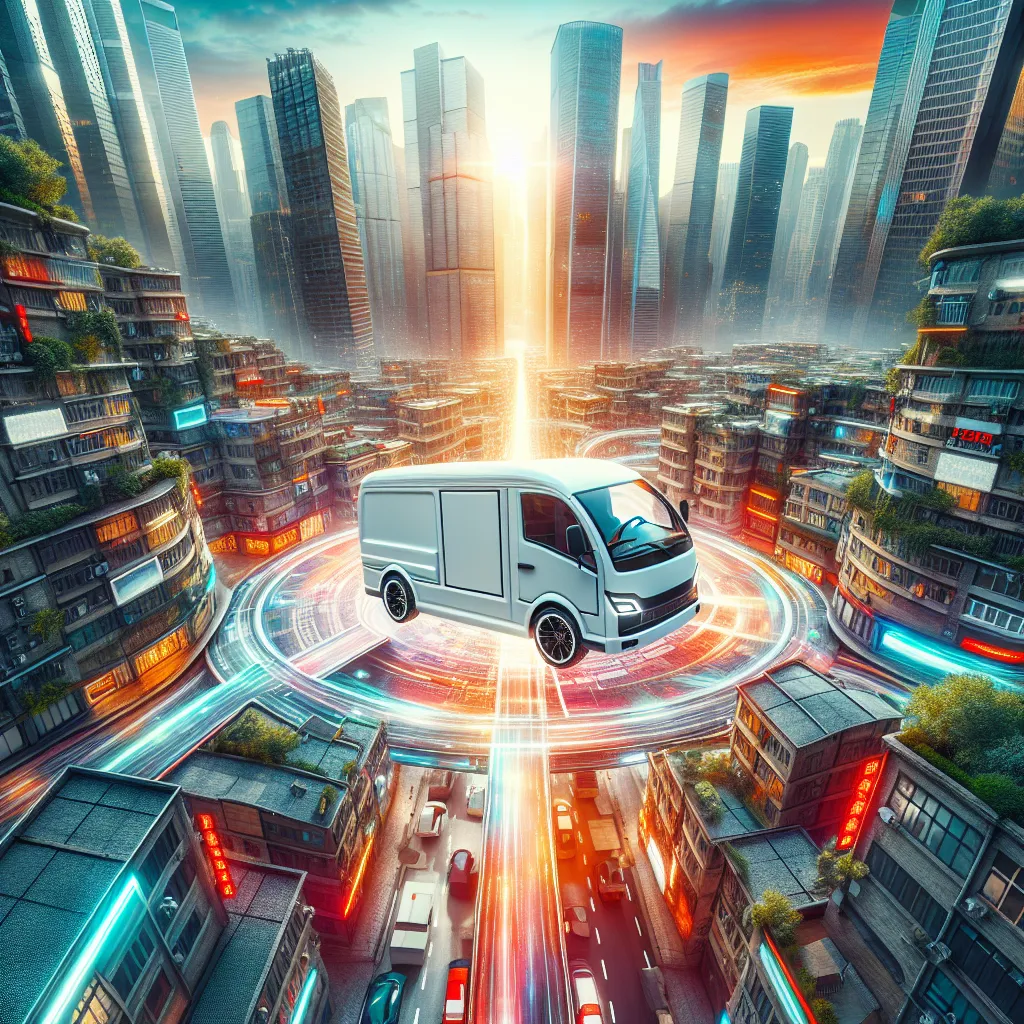Reducing Carbon Emissions: A Critical Challenge for the Delivery Industry
Reducing carbon emissions is a critical challenge for the delivery industry in the context of sustainability. The transportation sector, including delivery services, is a significant contributor to carbon dioxide emissions, which are one of the primary drivers of climate change. As e-commerce continues to grow, so does the carbon footprint of the delivery industry.
To address this challenge, delivery companies are increasingly turning to alternative fuels and energy-efficient vehicles. Electric delivery vans and bikes are becoming more common in urban areas, offering zero-emission delivery options. Additionally, the use of renewable energy sources to power delivery fleets is gaining traction as companies seek to reduce their reliance on fossil fuels.
Innovative route optimization and logistics management technologies are also being employed to minimize the distance traveled and reduce fuel consumption. This includes leveraging data analytics to optimize delivery routes and reduce idle time, ultimately leading to lower carbon emissions.
Furthermore, the implementation of sustainable packaging practices is another crucial step in reducing the environmental impact of the delivery industry. Using recyclable and biodegradable packaging materials, as well as optimizing packaging design to minimize waste, can significantly contribute to lowering the carbon footprint of the delivery process.
In conclusion, reducing carbon emissions is an essential focus for the delivery industry as it strives to become more sustainable. By embracing alternative fuels, optimizing delivery logistics, and adopting eco-friendly packaging practices, delivery companies can make significant strides in addressing this critical challenge and contribute to a more sustainable future.
Promoting Sustainable Packaging Solutions in Delivery Logistics
When it comes to sustainability challenges in the delivery industry, one crucial aspect is promoting sustainable packaging solutions in delivery logistics. As e-commerce continues to thrive, the demand for shipping and packaging materials has skyrocketed, resulting in increased environmental impact. However, the delivery industry is recognizing the importance of adopting eco-friendly practices, including the implementation of sustainable packaging.
Businesses are increasingly turning to renewable and biodegradable materials for their packaging needs. This shift not only reduces the use of traditional, non-biodegradable materials but also minimizes waste and environmental pollution. Additionally, optimizing packaging design to reduce excess space and materials not only decreases shipping costs but also lessens the overall environmental footprint.
Furthermore, many companies are exploring innovative packaging solutions such as reusable packaging and minimizing air cargo to lower carbon emissions. Embracing sustainable packaging solutions not only aligns with corporate social responsibility but also appeals to environmentally conscious consumers, thereby enhancing brand reputation and customer loyalty.
In conclusion, promoting sustainable packaging solutions in delivery logistics is imperative for mitigating the environmental impact of the delivery industry. By prioritizing eco-friendly materials, optimizing packaging design, and embracing innovative solutions, businesses can contribute to a more sustainable future while meeting the growing demands of e-commerce.
The Role of Technology in Addressing Environmental Impact in the Delivery Sector
In recent years, the delivery industry has faced significant sustainability challenges stemming from the environmental impact of transport-related emissions and packaging waste. As consumers increasingly rely on online shopping and home deliveries, the carbon footprint of the delivery sector continues to expand. However, technology is playing a crucial role in addressing these environmental concerns and driving sustainable practices within the industry.
One of the key technological advancements making a positive impact is the implementation of route optimization software and machine learning algorithms. These tools help delivery companies reduce fuel consumption and minimize emissions by planning more efficient delivery routes. By consolidating multiple deliveries into one route and utilizing real-time traffic data, companies can significantly reduce their carbon footprint and contribute to lower overall emissions.
Furthermore, the development of electric and alternative fuel vehicles is revolutionizing the delivery industry. Electric delivery vans and bicycles are becoming increasingly common, offering a zero-emission solution for last-mile deliveries. Additionally, advancements in vehicle technology and infrastructure are paving the way for the widespread adoption of hydrogen fuel cells and sustainable biofuels, further reducing the environmental impact of delivery operations.
Technology is also driving innovation in packaging materials and design. The use of sustainable and biodegradable packaging materials, coupled with the implementation of smart packaging solutions, is helping to minimize the environmental impact of packaging waste. Furthermore, blockchain technology is being leveraged to create transparent and traceable supply chains, ensuring the ethical sourcing of materials and reducing waste throughout the delivery process.
In conclusion, technology plays a pivotal role in addressing the sustainability challenges faced by the delivery industry. From optimizing delivery routes to embracing alternative fuel vehicles and innovating packaging solutions, technological advancements are instrumental in mitigating the environmental impact of delivery operations. As the industry continues to prioritize sustainability, ongoing technological developments will be vital in driving positive change and creating a more environmentally friendly delivery sector.




